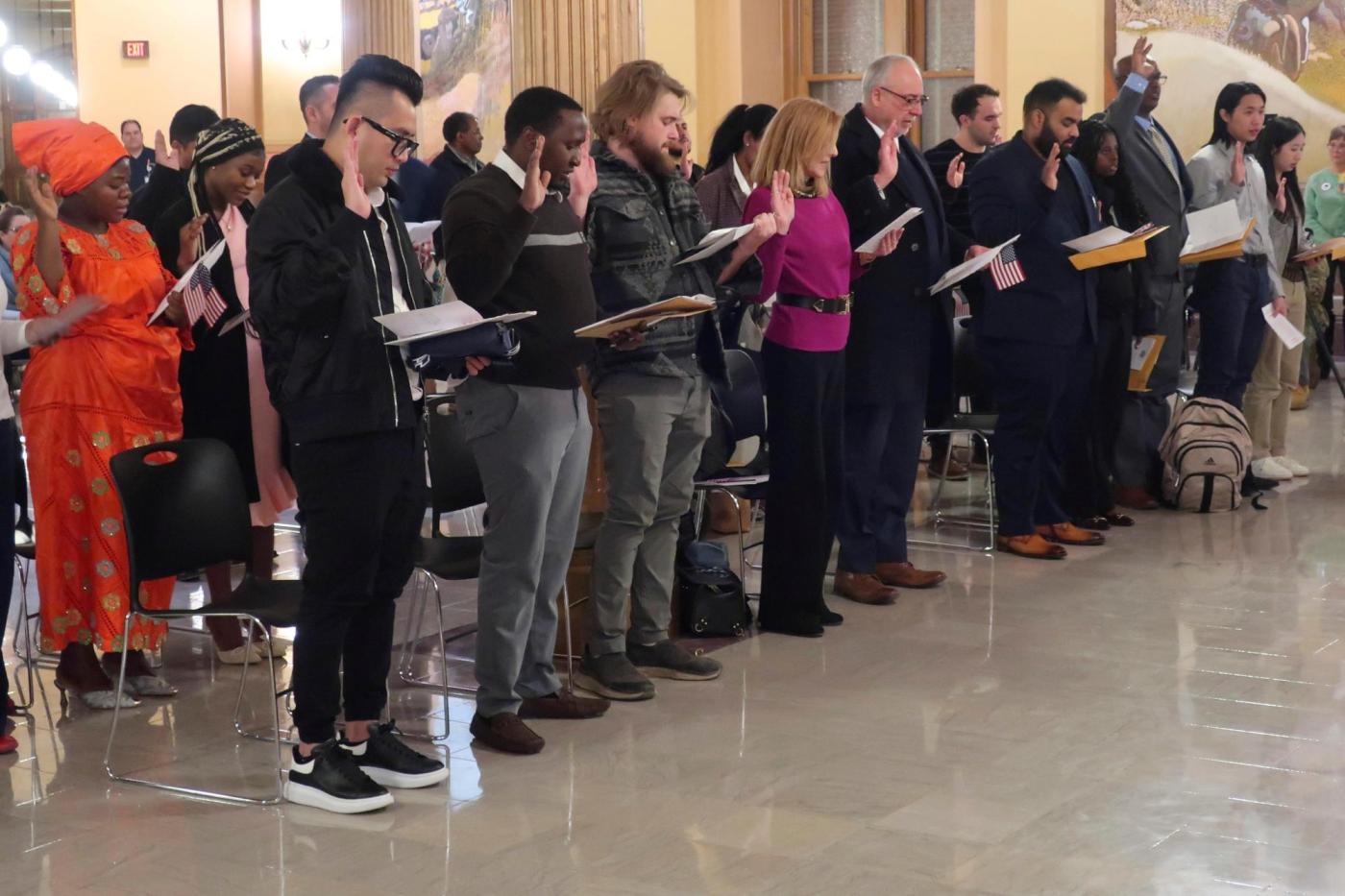URGENT UPDATE: The Department of Homeland Security, led by Secretary Kristi Noem, has just announced updated citizenship criteria that may change the landscape of American identity. With new moral character requirements in play, many are left questioning what it truly means to be an American.
As the details unfold, the lack of specificity in these new regulations raises eyebrows. Will character be evaluated subjectively by immigration agents, or will there be clear guidelines? The ambiguity could lead to significant implications for those seeking citizenship.
This announcement is particularly urgent as it coincides with a growing national conversation about immigration and civic responsibility. The new citizenship test is reportedly designed to assess applicants not just on legality, but on their perceived moral standing within the community.
In a cheeky take, critics have humorously posed potential questions from the new citizenship test. For instance, one question asks how to respond if a golf ball with a tiny red hat falls from a caddie’s pocket. The options range from burying it in a sand trap to returning it with a show of respect—a metaphor for the moral dilemmas facing prospective citizens.
Another controversial aspect involves documentation of good moral character. One option humorously suggests relying on a notorious figure like Ghislaine Maxwell as a reference, highlighting the absurdity of the new requirements. Meanwhile, serious concerns arise regarding the treatment of immigrants, particularly those confined in overcrowded conditions in the Everglades, sparking outrage and moral questioning among citizens.
The implications of these updates are profound and immediate. With the new criteria set to influence citizenship applications moving forward, potential citizens could face increased scrutiny over their personal histories and community interactions. The stakes are high, as these changes could redefine who is considered worthy of American citizenship.
As the conversation around these new criteria continues to develop, many are left wondering what the next steps will be for both current citizens and those seeking to join the American fabric. Observers are urged to stay tuned for further updates as the situation evolves.
This shift in policy is not just a bureaucratic measure; it strikes at the heart of national identity and civic values. How the new requirements will be enforced and interpreted remains to be seen, but one thing is clear: the face of American citizenship could be changing dramatically.
Stay informed as we monitor the latest developments on this critical issue affecting countless lives across the nation.


































































